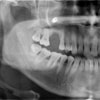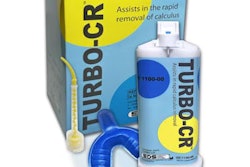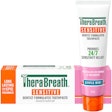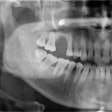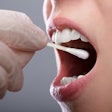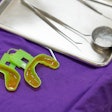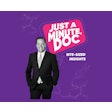If you ask most hygienists why they entered the profession, the answers are pretty consistent:
“I wanted to help people.”
“It offered flexibility and great pay.”
“I knew it was a secure career with options.”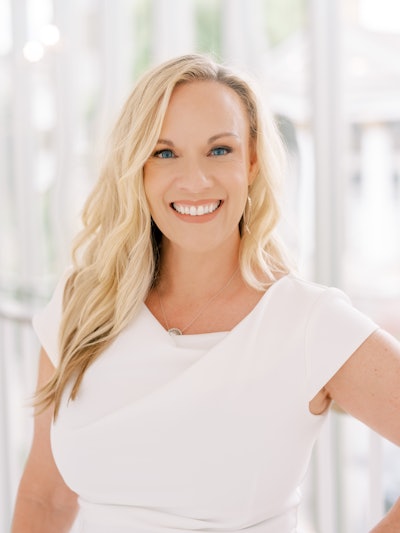 Kelly Tanner, PhD, RDH.
Kelly Tanner, PhD, RDH.
Over the last few years, there’s been growing chatter online -- Reddit threads, Facebook groups, and hygiene forums -- asking a harder question: Is dental hygiene still as stable as we thought?
As someone who’s been in the profession for three decades, I can say this: Dental hygiene is still a strong and valuable career, but like any profession, its stability depends on how it’s supported, structured, and sustained. And it’s also what you make of it and how you take accountability for your own growth.
The numbers don’t lie: Demand is strong
According to the U.S. Bureau of Labor Statistics, employment for dental hygienists is projected to grow 9% from 2023 to 2033 -- faster than the average for all occupations. About 16,400 openings are expected each year as hygienists retire, switch careers, or shift to nonclinical roles.
In short, the demand is there. But demand doesn’t always mean stability, especially if the job environment isn’t supportive.
What the internet is telling us
Online conversations reflect what data alone can’t always show … the emotional temperature of the profession. Many hygienists express satisfaction and longevity in their roles.
Others are vocal about the challenges of overbooked schedules, high-pressure environments, repetitive strain injuries, limited advancement opportunities, and feeling undervalued. Still, many report feeling proud of their work and optimistic about the profession, especially when they find a practice that respects their expertise and encourages autonomy.
“It’s not the profession. It’s the environment. When you find the right one, you’ll want to stay,” one hygienist wrote in a popular Facebook group.
Burnout is real, but it doesn’t mean the profession is broken
Burnout has been a major theme since the pandemic. While it affects many healthcare professions, dental hygiene presents unique physical and emotional demands.
But burnout doesn’t mean hygiene is unstable. It means we need better systems in place to support longevity.
Some of the most empowered hygienists today are those who’ve taken action, transitioning to flexible schedules or temp work, exploring nonclinical roles in education or public health, joining practices that prioritize quality over quotas, investing in ergonomic tools, and reigniting their passion through mentorship and leadership development.
Public education: A crucial piece of the puzzle
One of the ongoing challenges facing dental hygiene is the lack of public understanding about the role of the dental hygienist. Many patients (and even some professionals) confuse hygienists with dental assistants. While both roles are vital to the function of a dental practice, they are distinctly different in terms of responsibilities, educational pathways, and licensure requirements.
Educating the public is part of the solution to creating long-term stability in the profession. When patients and community members understand the training, expertise, and scope of practice that dental hygienists bring to care delivery, they are more likely to value and advocate for our role.
One organization leading the way in this effort is the Oral Health Awareness Project, which empowers dental professionals to spread awareness, advocate for their profession, and engage with their communities. This kind of advocacy is essential, not just for elevating public perception but for driving real policy and structural change.
For practice owners and industry leaders
If we want to retain passionate, high-performing hygienists, the message is clear: Support matters. That means creating psychologically safe environments, honoring work-life balance, and respecting hygiene as more than just a “revenue generator.” When every provider is empowered, the entire practice thrives.
Is dental hygiene still a stable profession? Absolutely. Careers need preventive care too. When we take care of our systems, our people, and ourselves, this profession becomes not just stable but sustainable and rewarding.
The bottom line: Yes, it’s stable … if you know how to navigate it
Dental hygiene remains one of the most accessible, flexible, and financially rewarding healthcare professions. But its stability is no longer just about graduating and getting a job.
It’s about knowing how to choose the right work environment, advocating for your well-being, building skills beyond the operatory, surrounding yourself with an uplifting professional community, and diversifying your career options so you can grow, not grind.
Ready to reclaim your career confidence?
If you’re a dental hygienist looking to reignite your passion, build leadership skills, and take back control of your career path, you don’t have to do it alone. My monthly Next Level Group Coaching program is designed specifically for hygienists who want to feel empowered, supported, and energized in their work.
You’ll gain tools to set boundaries, elevate communication, grow your clinical confidence, and connect with like-minded peers who truly understand what it’s like to sit in your chair.
Kelly Tanner, PhD, RDH, is a contributing author to DrBicuspid, where she shares insights and strategies to empower dental hygienists in their careers. As a leader in clinical training, professional development, and team dynamics, Tanner provides resources to help hygienists elevate their practice and personal growth. For further support, join her free Facebook group Next Level Dental Hygiene Career and Personal Development, and explore group training and on-demand courses at www.nextleveldentalhygiene.com.
The comments and observations expressed herein do not necessarily reflect the opinions of DrBicuspid.com, nor should they be construed as an endorsement or admonishment of any particular idea, vendor, or organization.


